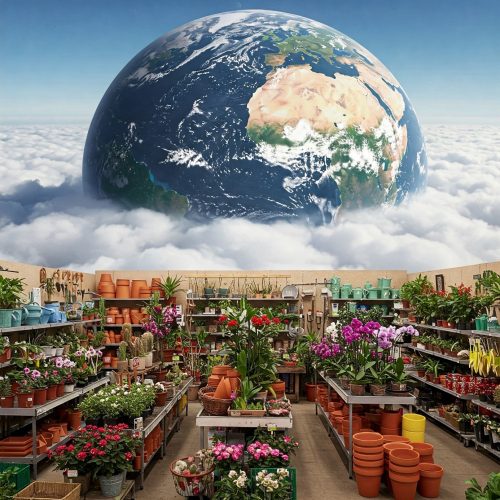- ML SP. Z O.O.
- Responsive
- Posted by
Desired outcome
This task involves developing a comprehensive database of tool companies, wholesalers, stores, and garden centers across Europe, the Middle East, and Asia, identifying key decision-makers responsible for procurement, and creating a B2B customer segmentation system.
Students will analyze financial data, business models, and sales channels to provide Stella Green with valuable insights for precise sales targeting.
The final database will include not only company contact details but also market structure information, decision-makers, and B2B client business models, enabling the automation and optimization of marketing campaigns.
Initial Problem Description
Stella Green's expansion into new markets requires precise identification of potential customers, but simply finding companies is only the beginning. Key challenges include:
• Reaching decision-makers, such as buyers, procurement managers, store owners, and wholesalers.
• B2B market segmentation based on business scale – the market structure in Europe, Asia, and the Middle East varies significantly.
• Determining business models – whether a company operates only through physical stores, e-commerce, or a hybrid model.
• Access to financial data to estimate the potential size of prospective customers.
The goal is to build a customer database that incorporates decision-makers, market structure, and business models, allowing Stella Green to efficiently direct its sales efforts.
Context
A well-structured database will enable Stella Green to:
• Precisely target sales campaigns, reaching the right decision-makers.
• Identify key players in the market through company size and business structure segmentation.
• Differentiate between online, offline, and hybrid customers, improving marketing strategy alignment.
• Automate outreach processes, ensuring direct contact with decision-makers rather than sending mass emails to generic company addresses.
Connection to cross-cutting areas
• Circular Economy – Do garden and construction distributors actively promote eco-friendly products, which could be a sales argument?
• Overall Sustainable Development – Which companies actively promote sustainable solutions and could be interested in Stella Green’s products?
• Industry 4.0 & Digitization – Automation of data collection, customer classification, and offer personalization.
Input
• List of Stella Green products with potential for sales through wholesalers and garden stores.
• Target regions: Europe, the Middle East, Asia.
• Data sources:
o B2B platforms: LinkedIn Sales Navigator, Kompass, Europages.
o Business databases: Apollo, ZoomInfo, Hunter.io.
o Competitor analysis: Review of competitor companies' distribution networks.
o Company directories: Local business databases in key markets (e.g., Wer liefert was, PagesPro, Yell).
o Financial data of companies – government registers, annual reports (if available).
Expectations
Students will develop a business contact database and optimize the process of reaching decision-makers and segmenting customers:
1. Identifying the target audience:
o Construction and garden wholesalers.
o Garden stores and DIY centers.
o Tool companies offering construction and gardening accessories.
o Distributors of eco-friendly products in the garden and construction sector.
2. Identifying decision-makers within companies:
o Buyers and procurement managers.
o Owners of stores and retail chains.
o E-commerce and online sales managers.
3. Segmenting B2B customers:
o Business scale – segmentation criteria defined by students (e.g., annual revenue, number of locations).
o Business model – brick-and-mortar store, e-commerce, or hybrid model.
o Geographical distribution – segmentation by countries and regions with the highest purchase potential.
4. Data collection and structuring:
o Company name.
o Contact details (procurement department email, phone number, website).
o Location (country, region).
o Business profile (wholesaler, retailer, distributor).
o Decision-maker details (name, position, email, LinkedIn profile).
5. Verifying data quality:
o Checking contact accuracy using tools such as NeverBounce, Voila Norbert, Clearbit.
o Removing duplicate and outdated entries.
o Segmenting data by country, company type, and purchase potential.
6. Automating sales outreach:
o Developing an email marketing strategy for reaching decision-makers.
o Using automation tools (Woodpecker, Mailchimp, etc.).
o Testing different approaches (e.g., personalized vs. mass email campaigns).
7. Analyzing campaign effectiveness:
o Tracking open rates, clicks, and responses.
o Optimizing email content and customer segmentation based on results.
Desired Team Profile
• Students from fields such as economics, management, international business, business analytics, supply chain management, industrial process engineering, project management, digital business processes, branding, and marketing strategy.
• Individuals skilled in market research and business data analysis.
• Students with experience in identifying decision-makers in B2B companies.
• Familiarity with email marketing and outreach automation tools is a plus.
Additional Information
• The primary goal is to reach the right individuals within companies, rather than just collecting generic contact information.
• Customer segmentation should account for real differences between European and Asian markets.
• Automating sales outreach will significantly enhance campaign effectiveness and save time.
Related Keywords
About ML SP. Z O.O.
ML Polyolefins is a leading producer of recycled polypropylene (rPP) in Poland and Central and Eastern Europe, with an annual production capacity of up to 25,000 tons. The company specializes in comprehensive plastic waste management, focusing on the recycling of post-consumer (PCR) and post-industrial (PIR) waste. As a result, ML Polyolefins delivers high-quality recycled raw materials, contributing to environmental protection and promoting a circular economy.
Stella Green, a brand owned by ML Sp. z o.o., specialises in the production of ecological solutions for construction and horticulture. The brand was created with the idea of reusing recycled plastics. We have developed products whose main focus is functionality and durability, while at the same time caring for the environment. The first product introduced under the Stella Green brand was a garden-parking grid with versatile applications ranging from the garden, car parks, access roads, urban projects to landing pads and open storage. Over time, our range has expanded to include garden edging and palisades, trays and buckets – all made from high quality 100% recycled plastic.

You need to sign up to apply to this challenge and submit a motivation letter!

Learn more about the topics and find team members!
Help
Need help submitting your proposal or have questions regarding this Open Innovation Challenge?
Contact support

